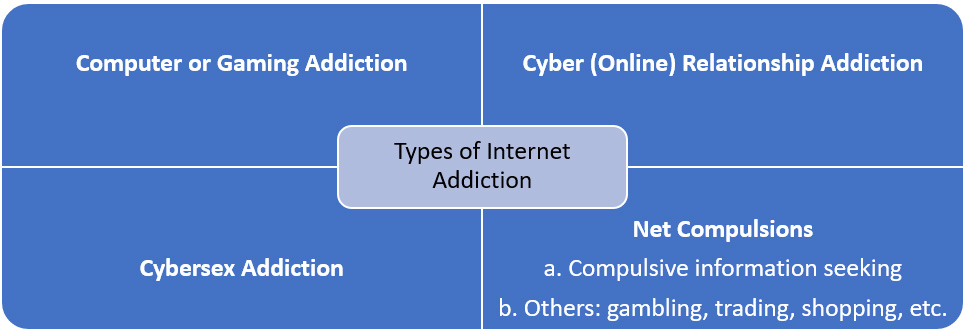Recently, researchers from McGill University in Canada released a study on the use of smartphones with a meta-analysis (from 2014 to 2020) and reported it in the journal of Computers in Human Behaviour. In terms of smartphone addiction, Chinese users are said to be at the top, followed by Saudi Arabia and Malaysia in third position.
The risks of excessive use of smartphones and social media were highlighted but yet to be seriously heeded. As this trend continues, addiction becomes even more pervasive over time as more and more people are driven to be dependent on smartphones for various purposes such as work, leisure, etc.
According to the consultant psychologist, Ms Lee Li Li, there are underlying psychological factors that increase a teen’s vulnerability to gaming or computer addiction. Research also shows a correlation between teenage gaming addiction and the prevalence of depression, anxiety and psychological trauma. It follows then that teens use excessive gaming as a coping strategy for life problems. Video games often serve as a form of escape and a way to numb distress and discomfort.

1. What makes video games addictive?
There are several “hooks” that are built into games with the intent of making them “addictive”, such as boosting their self-worth, self-esteem and self-confidence hence providing them with a sense of control, accomplishment, interesting challenges, as well as cheering for their achievements.
2. Hobby or addiction?
3. How to tell if you are addicted to the internet?
Dr Kimberly Young introduced a diagnostic questionnaire for “internet addiction”, with 8 dichotomous items. If the participant answered “yes” to five (or more) of the dichotomous items, then they were considered “addicted”.
4. Impact of the internet addiction
5. Tips for parents to help your teen
6. Treatments
A. Medical Profession:
B. Psychological profession:
** Isolated treatment is recommended for severe cases.
Source:
网瘾戒得了吗?. (2022), (Vol 24), 10-11. Retrieved 21 July 2022.
The risks of excessive use of smartphones and social media were highlighted but yet to be seriously heeded. As this trend continues, addiction becomes even more pervasive over time as more and more people are driven to be dependent on smartphones for various purposes such as work, leisure, etc.
According to the consultant psychologist, Ms Lee Li Li, there are underlying psychological factors that increase a teen’s vulnerability to gaming or computer addiction. Research also shows a correlation between teenage gaming addiction and the prevalence of depression, anxiety and psychological trauma. It follows then that teens use excessive gaming as a coping strategy for life problems. Video games often serve as a form of escape and a way to numb distress and discomfort.

1. What makes video games addictive?
There are several “hooks” that are built into games with the intent of making them “addictive”, such as boosting their self-worth, self-esteem and self-confidence hence providing them with a sense of control, accomplishment, interesting challenges, as well as cheering for their achievements.
2. Hobby or addiction?
| Hobby | Addiction |
|
|
3. How to tell if you are addicted to the internet?
Dr Kimberly Young introduced a diagnostic questionnaire for “internet addiction”, with 8 dichotomous items. If the participant answered “yes” to five (or more) of the dichotomous items, then they were considered “addicted”.
- Preoccupation with the Internet;
- Feeling a need to use the Internet in increasing amounts;
- Repeated unsuccessful attempts to control Internet use;
- Moodiness if restricted from Internet use;
- Staying online longer than intended;
- Lying about or hiding the extent of the Internet use;
- Using the Internet as a way of escaping from problems or to cope with dysphoric mood;
- Functional impairments or distress with respect to relationships, work, or other career opportunities.
4. Impact of the internet addiction
| Examples | |
| Physical | Sleep inversion, energy ups and downs, lack of physical activity, fatigue, loss of appetite, etc. |
| Psychological | Emotionally unstable, emotional numbness, the difference in concentration capabilities |
| Behaviour | Increased time spent on the internet, neglect of work, changing forms of social interaction, increased impulsivity/aggressive behaviour |
5. Tips for parents to help your teen
- Stay calm and take care of your mental health by showing genuine concern and care with supportive words and actions.
- Focus on the psychological needs of your child instead of their behaviours.
- Substitute internet usage with other healthy hobbies according to their needs for recognition, achievement, friends, etc.
- Seek professional support when it’s necessary
- Establish a connection with your teen to strengthen family relationships
- Support your teen’s mental and physical wellness through family activities
- Broaden their understanding and connection with the world through values teaching, community activities such as volunteering, etc.
- Make a new schedule and allocate time for leisure activities, academic studies and others.
- Identify the problems (e.g., academic stress, family conflicts, internet addiction, etc.) with your teens
- Establish two-ways communication with your teen
6. Treatments
A. Medical Profession:
- Medication
- Modified Electroconvulsive Therapy (MECT)
- Electroaversion therapy (EAT)
B. Psychological profession:
- Personal psychological and behavioral therapy
- Group psychological and behavioral therapy
- Skill training/retraining programme
** Isolated treatment is recommended for severe cases.
Source:
网瘾戒得了吗?. (2022), (Vol 24), 10-11. Retrieved 21 July 2022.





